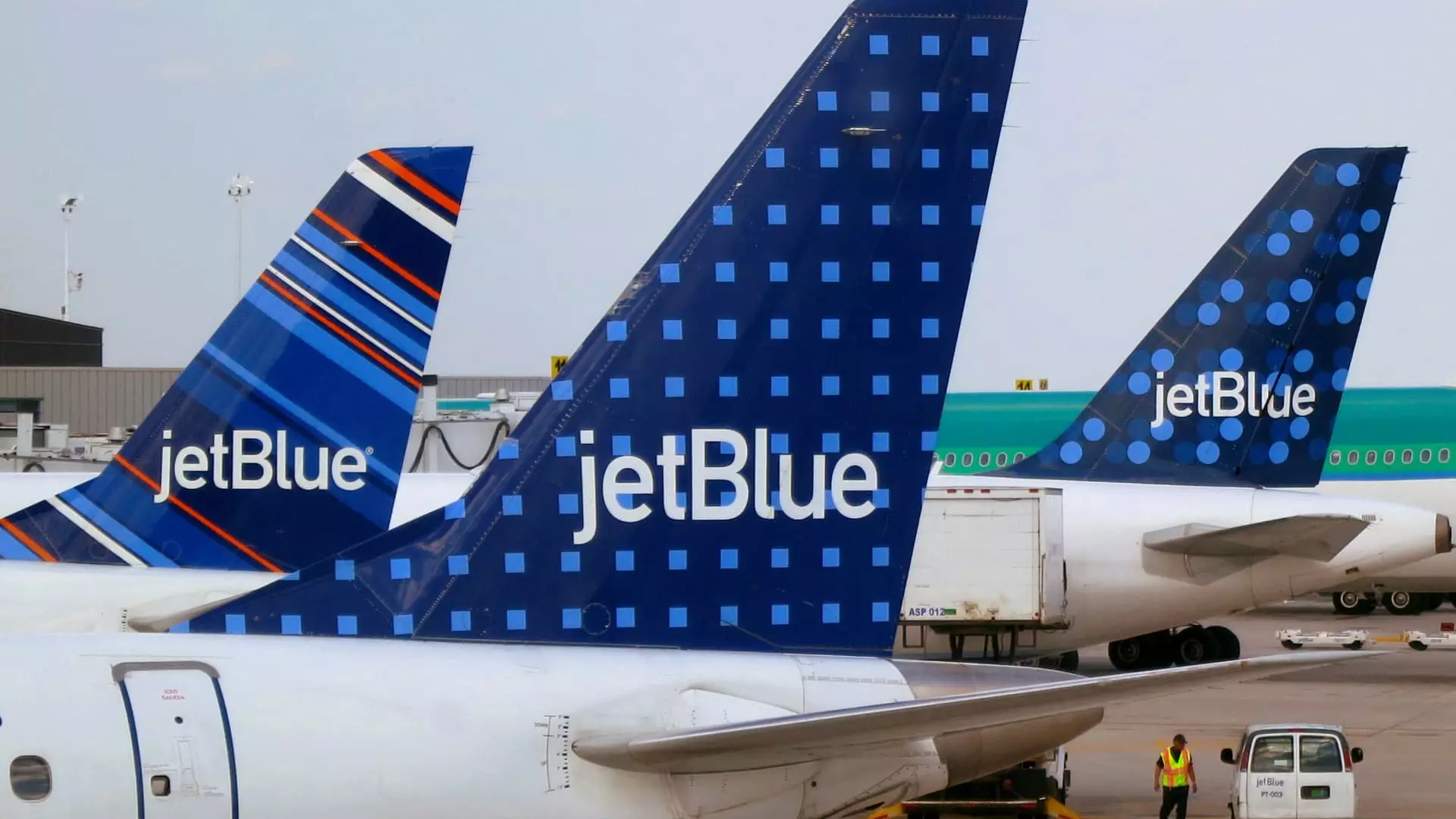In an unprecedented move, the Department of Transportation (DOT) imposed a $2 million penalty on JetBlue Airways, marking a significant moment in airline regulation. This action stems from findings that JetBlue operated several routes suffering from exceptionally high rates of delays—more than 145 instances from June 2022 to November 2023, as reported by the DOT. The airline’s operations connecting John F. Kennedy International Airport and Raleigh-Durham International Airport, and various Florida routes, have been particularly scrutinized. The scale and consistency of delays in these routes have raised alarms about the airline’s flight scheduling practices.
Joe Buttigieg, the Transportation Secretary, emphasized that this fine is intended to set a precedent within the airline industry, underlining that the expectations for operational reliability are not merely suggestions but rather requirements. The crux of the matter lies in JetBlue’s responsibility for over 70% of the disruptions on these suspect routes, revealing systemic issues within the airline’s scheduling protocols.
The DOT’s criteria for deeming a flight “chronically delayed” is telling and significant. A flight is categorized under this definition if it operates at least ten times in a single month and experiences tardiness of over 30 minutes on more than half of those occasions. By this yardstick, JetBlue found itself under scrutiny not just for dubious scheduling practices but for a pattern that could undermine passenger trust in the industry as a whole.
This regulatory attention reflects broader concerns within the aviation sector about operational efficiency and reliability—which are increasingly vital in a world where travelers expect timely departures and arrivals. The DOT’s vigilance in this area could possibly lead to further investigations into other airlines, emphasizing the importance of prioritizing consumer convenience within the complex matrix of domestic air travel.
JetBlue’s official response to the DOT’s penalization brought forth interesting discussions about shared responsibility in the aviation ecosystem. The airline articulated that accountability for reliable air travel should not solely fall on carrier operations but also on the governmental management of air traffic control systems. JetBlue called for enhanced staffing levels and modernization of air traffic control technology, highlighting a multi-faceted challenge that intertwines airline operations with regulatory frameworks.
Mirroring sentiments echoed by leaders at major carriers like Delta and United, JetBlue argued that addressing the systemic inefficiencies of air traffic management is equally crucial in minimizing delays affecting travelers nationwide. The emphasis on governmental responsibility raises pertinent questions about the sufficiency of current infrastructure, which may well be a contributing factor to chronic delays.
Despite receiving such a severe fine, JetBlue indicates progress, claiming an improvement in on-time performance from 64.9% in the previous year to 71.3% over the past nine months. This statistic seems to provide a glimmer of hope amid challenges. However, ranking ninth out of ten major U.S. airlines in terms of on-time arrivals suggests that there is still considerable work to be done.
The willingness of the DOT to credit JetBlue for a portion of the penalty as goodwill compensates paid to affected passengers during the investigation could potentially soften the immediate financial blow while maintaining the airline’s public relations efforts. However, this goodwill approach does not nullify the core issues that plagued the airline during that period, reiterating the necessity for long-standing systemic reforms.
In light of the recent developments, the aviation industry stands at a crucial juncture. Both airlines and governmental bodies must foster a collaborative approach to tackle the systemic issues highlighted by recent events. Modernizing outdated air traffic control technology, addressing staffing shortages, and ensuring accountable scheduling practices will be central to restoring public trust.
JetBlue’s experience is indicative of broader patterns in the aviation industry that require careful attention and reform. As the sector looks to enhance operational integrity, the lessons learned from this $2 million fine should inspire deeper engagement between airlines and regulatory bodies to create a reliable and efficient travel landscape for all passengers.

